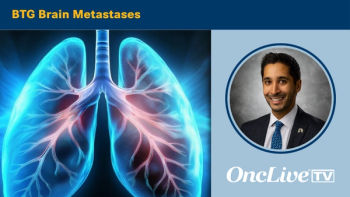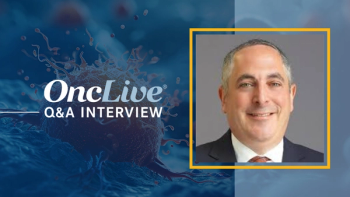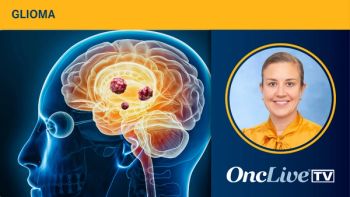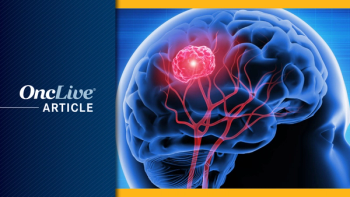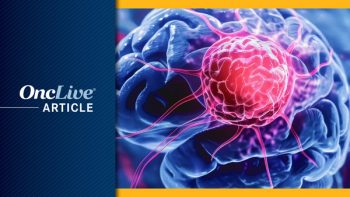
The Optune Device in Glioblastoma: Patient Selection
<
Transcript:Susan C. Pannullo, MD: One of the appeals of the Optune device is its lack of systemic toxicity for the patient. Because the device is placed on the patient’s head, the therapy is essentially localized to the tumor and to the patient’s head, allowing the patient to avoid the systemic toxicity which is associated with systemic therapies such as chemotherapy and targeted agents. Because of the lack of systemic toxicity associated with use of the Optune device, this particular therapeutic approach may be particularly useful for patients who have experienced side effects, such as myelosuppression, that may limit their ability to utilize systemic chemotherapy. Future applications of the Optune technology may include combinations with a variety of different agents and combinations with radiation strategies such as stereotactic radiosurgery.
Steven A. Toms, MD: When you have a patient who might be a candidate for Optune, or the tumor treating fields, or any patients who are not—well, right now the device is not approved for patients who are pregnant, as we don’t know any effects that might have on the fetus. But the most important contraindications are patients with implanted electrical devices such as pacemakers, vagal nerve stimulators, and deep brain stimulators. We don’t yet know how the electrical device might interfere with them right now.
Other patients among whom to consider not using the device are those who have a large skull defect. It’s very difficult to apply the electrodes with these large defects. And then patients who have bad allergies to hydrogel, such as EKG lead pads. Because of the hydrogel and the sticky pad on the bottom of this, these are patients you can’t use this in.
Lastly, the ones that we’ve had a little bit of trouble with are those who have had bad wound complications—who have very thin scalps and scarring. They often don’t do quite as well and have more wound irritation and wound breakdown. Those are the patients in whom we have to take off treatment for periods of time or give topical steroids to get wounds to heal. But those tend to be the most complex.
Aside from those contraindications, the other patients that we try to avoid the treatment on are those who don’t have a great family support network. The device is intensive, so if a patient is not doing well cognitively and can’t participate in putting on the device and plugging it in, they’re usually not a very good candidate for this. Similarly, because it often takes a little help getting the electrodes on and getting some parts of the scalp shaved well, if they don’t have a good family support system, they tend not to do well.
The patients who tend to be best for the tumor treating fields, or Optune device, are those who are in better performance status—who tend to be motivated and who have good family support around them. Without that, it is somewhat burdensome the way the device is designed. It’s not to say that in 20 years it might be totally implantable with rechargeable batteries, but in its current iteration, it is a bit labor intensive and requires a village to keep maintained.
Transcript Edited for Clarity


